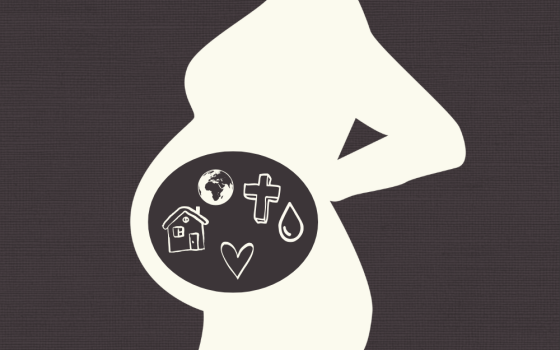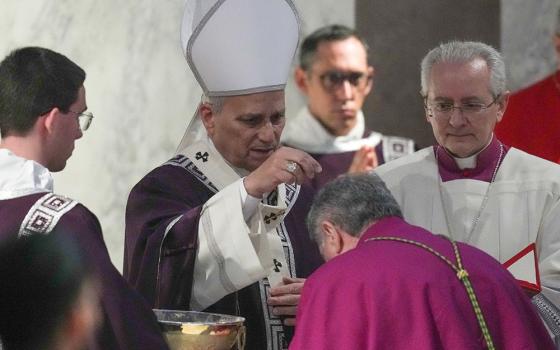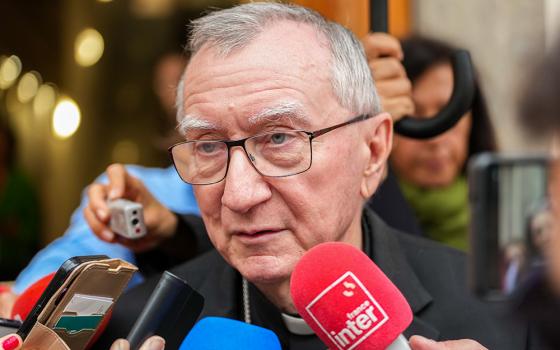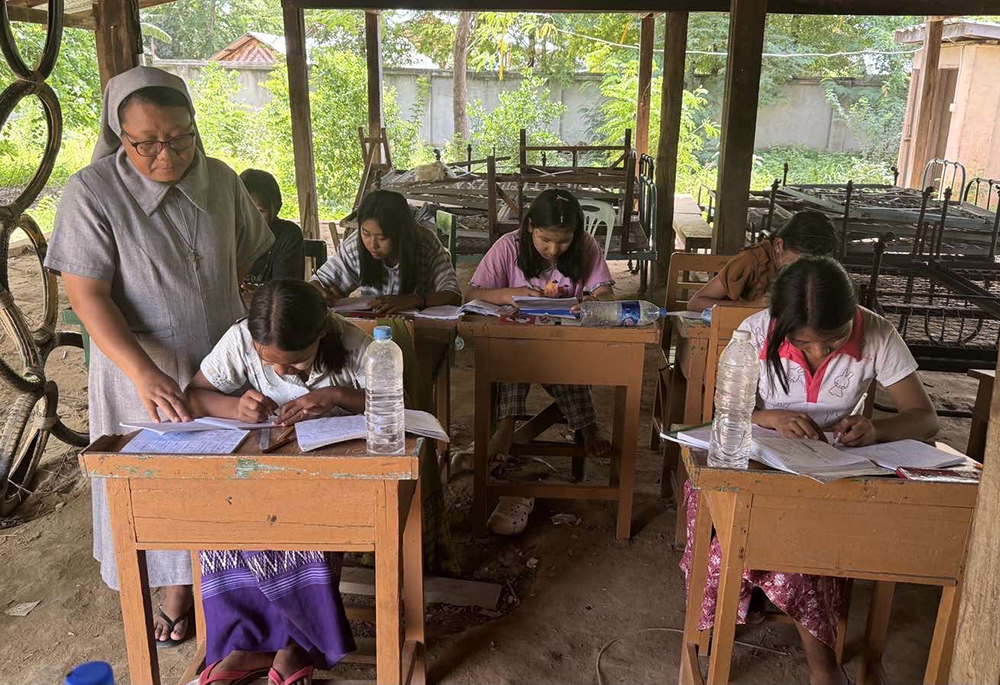
Sr. Roselyn Kay Mg checks on girls studying at the St. Joseph's Orphanage in Zaw Gyi village, Archdiocese of Mandalay, on June 25. Mg is in charge of the orphanage and serves as the superior of the Sisters of St. Joseph of the Apparition. (John Zaw)
Sr. Roselyn Kay Mg, a member of the Sisters of St. Joseph of the Apparition, locally known as the St. Joseph sisters, has been working with orphans for over 16 years in villages in Myanmar.
Mg was born in 1980, the third of five siblings to an ethnic Karen family in Maubin Township, in the Irrawaddy Delta region of southern Myanmar, which belongs to the Archdiocese of Yangon. Her father was a catechist, and she grew up learning prayers and listening to stories about the saints. She was sent to a church-run boarding school to pursue higher education, where she observed the nuns' work, prayers and activities. Motivated by the life of St. Emily (Emilie) de Vialar, she joined the Sisters of St. Joseph of the Apparition in 1999. She made her first vows in 2003 in Mandalay and professed her final vows in 2007.
Mg is currently in charge of St. Joseph's Orphanage in Zaw Gyi village, Archdiocese of Mandalay, and serves as the superior of her community. She recently spoke with Global Sisters Report about the center, its challenges, the need for funding and its future plans.
Global Sisters Report: Could you please tell us about St. Joseph's Orphanage?
Mg: The Mandalay Archdiocese established the center in Zaw Gyi village in 1937 to serve boys and girls with the help of the St. Joseph Sisters. However, since 2005, we have only accepted girls, and boys were sent to the centers run by brothers in the Archdiocese of Mandalay and the Diocese of Pathein. Our sisters took full responsibility for running the center, including securing funding and resources in 2020 [after] the diocese handed it over.
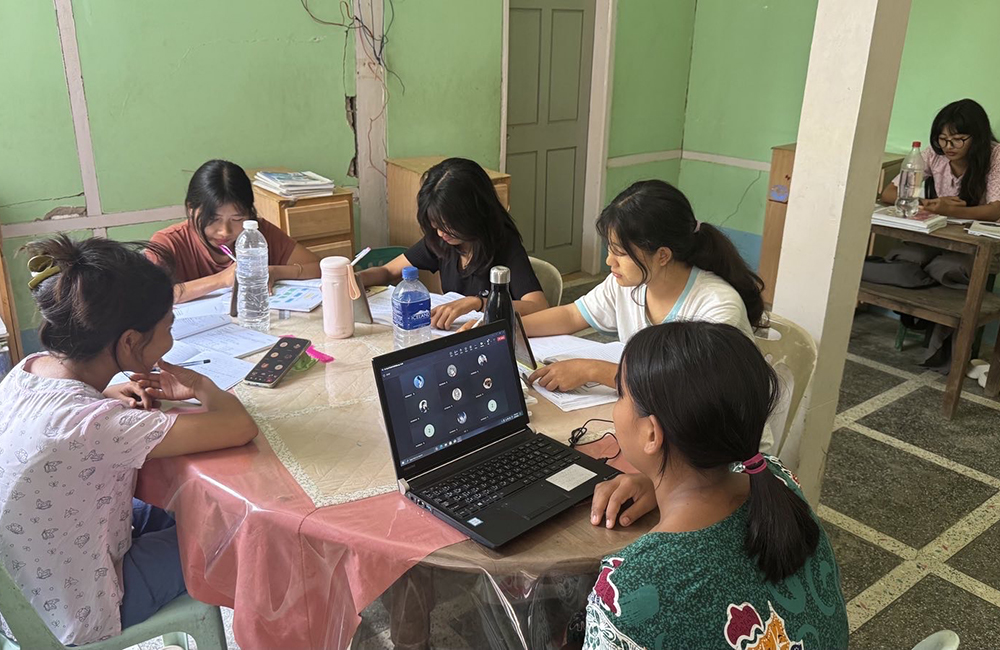
Students at St. Joseph's Orphanage attended an online learning program on June 25. The orphanage currently serves about 20 orphan girls, mostly from the Kachin, Chin and Bamar ethnic tribes. (John Zaw)
We currently have three sisters, including me, who cater to about 20 orphan girls. Our youngest is a 7-year-old Muslim girl sent by a priest from Mandalay after the divorce of her parents. The other girls are all Catholic, 7 to 18 years old, and hail from the Kachin, Chin and Bamar ethnic tribes.
All the orphans came from needy family backgrounds, and most of them had no parents. Some had one parent who did not take care of them because of economic issues. We often accept infant orphans, and a week-old child was [recently] abandoned by her mother at the church compound in Mandalay. Unfortunately, the child died in the hospital because of respiratory issues.
Did you have any prior experience or training in caring for children and orphans?
I attended church-run programs on child psychology, trauma healing, and training on how to run a boarding school. I now have 16 years of experience working with orphans. I was first assigned to head an orphanage in Hmawbi Township, the outskirts of Yangon, from 2009 to 2018. I was then assigned to this center in 2018.
I also worked with other St. Joseph sisters to conduct child trauma healing programs in various villages and convents of the Archdiocese of Mandalay.
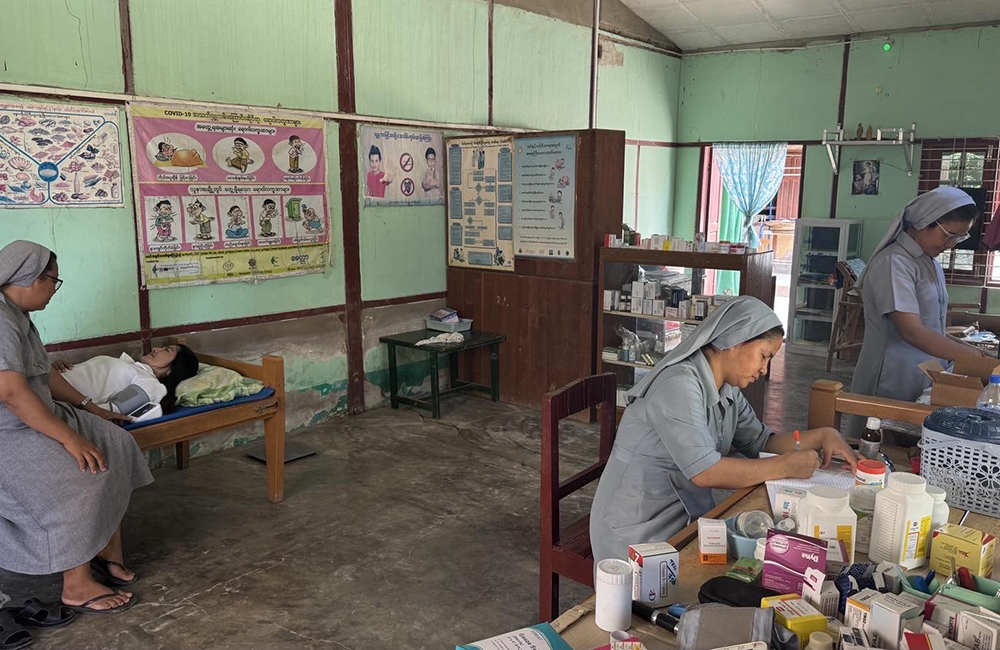
Three St. Joseph sisters (Sr. Roselyn Kay Mg is pictured at left) administer health care in a small clinic which helps orphans and villagers in Zaw Gyi village, Archdiocese of Mandalay. (John Zaw)
What daily challenges do you face at the center?
We care for orphans the same way that parents care for their own children and provide shelter, food, basic items and education. We try to show our love, care and foster a family spirit among them. As they come from different families, backgrounds, cultures and psychological needs, we also face the challenge of them growing up and becoming teenagers. So we must be very careful in dealing with them. Teenagers don't want to listen when we explain how to behave or how to stay disciplined. We allow them to use mobile phones for learning purposes and with limited hours, but I'm concerned they may misuse the internet for chatting and games.
Another challenge is the shortage of sisters in the center, as we also serve in parish ministry, run a clinic for villagers, teach catechism, decorate flowers for church services, and run a nursery.
The immediate challenge is repairing orphans' and sisters' residences, which were damaged by the earthquake that struck central Myanmar on March 28.
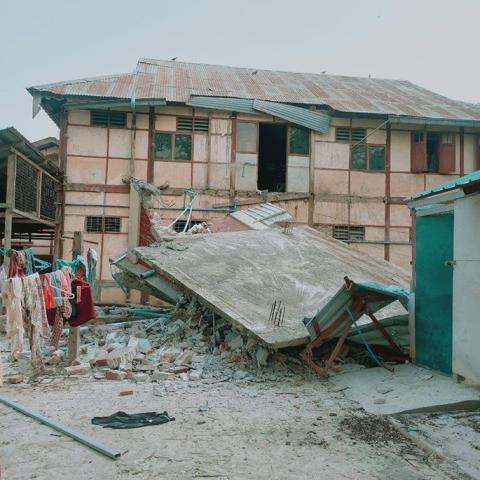
The convent of the Sisters of St. Joseph of the Apparition in Zaw Gyi village, Archdiocese of Mandalay, was damaged by a 7.7 earthquake on March 28. (Courtesy of Sisters of St. Joseph of the Apparition)
How do you navigate challenges with orphans from various backgrounds and ethnicities?
We need to build intimacy with them and foster a family spirit through listening and working together with patience. While we are cleaning in the center, working in the plantation, and decorating flowers in the church for Sunday services, we show our love and care and build towards intimacy. Then, they can share their feelings and experiences with us.
We offer them counseling and listen to their feelings, needs and problems. This requires a lot of patience. We also conduct classes on the Bible, morality and ethics, as well as child trauma healing programs with the help of priests and sisters from different congregations.
Where does the funding come from to run the center?
When the diocese ran the center, our sisters had to manage the costs of food, stationery, electricity and internet bills, school fees, teacher salaries, and clothes, since monthly support from the diocese was not enough.
Many private donors, including some Buddhists, came to the center to provide food and non-food items. However, few donors have come after fighting flared up in the country following the military coup in 2021.
We now apply for yearly support from the Pontifical Mission Societies. Our congregation sometimes supports us with donations they receive from donors abroad and locally.
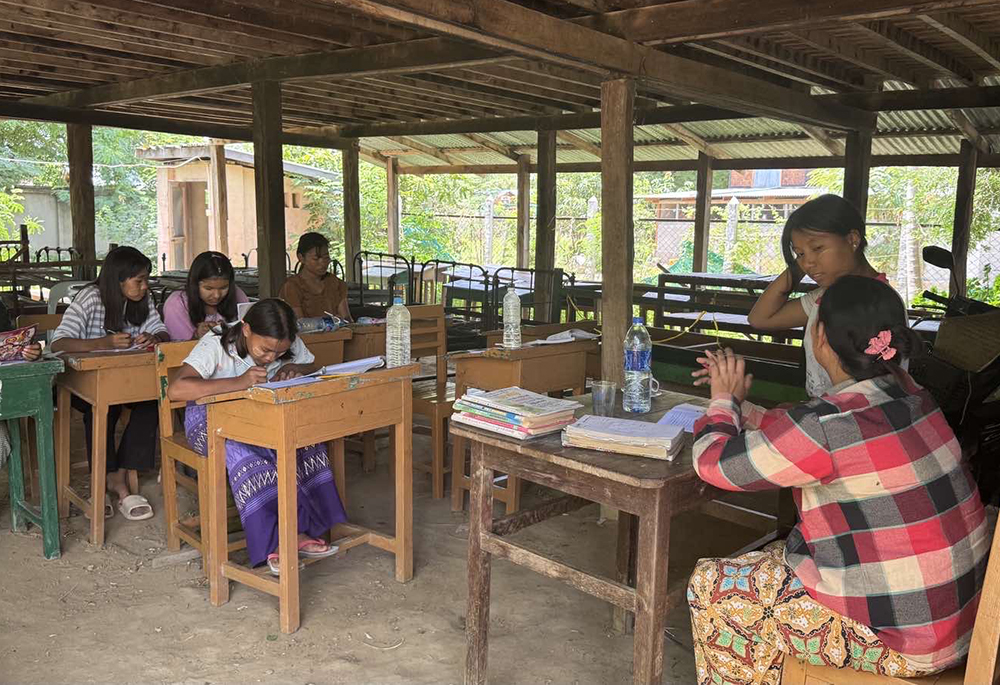
A teacher guides school lessons for girls at St. Joseph's Orphanage center in Zaw Gyi village, Archdiocese of Mandalay. The orphanage currently serves about 20 orphan girls, mostly from the Kachin, Chin and Bamar ethnic tribes. (John Zaw )
Tell us about the successes of the orphans who have been at the orphanage.
Many joined the congregation as pre-postulants, and three became St. Joseph sisters. Others married and went abroad for employment opportunities. Some work in the hospitality department in hotels abroad, while many have started their own sewing businesses or designer and beauty parlors. Others now volunteer in the church or at Caritas in Myanmar.
As parents of orphans no longer take responsibility for their children due to financial difficulties or divorce, our sisters have a duty to help orphans until they can stand on their own by providing formal education and vocational skills.
Advertisement
What's the plan moving forward for the center?
Financial resources are vital for sustainably running the center and providing life skills for orphans who have completed higher education or a university degree. Some are very keen on pursuing education abroad and further studies, but we can't provide enough financial support. We plan to provide vocational skills in English, Chinese, Japanese, sewing and design after they complete their higher education so they can stand on their own.



